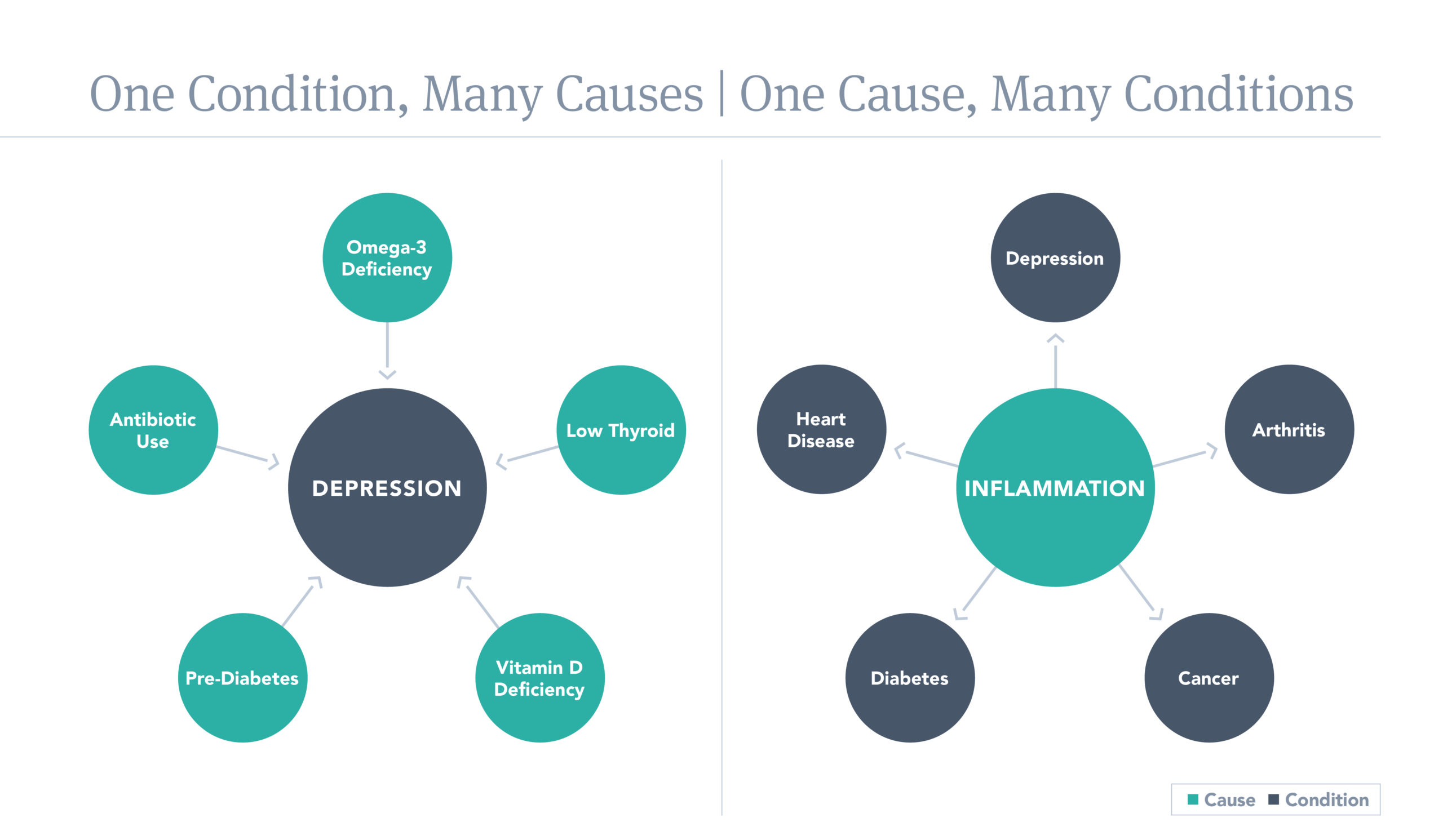A Look at Functional Medicine Among Healthcare Trends
Functional Medicine has become increasingly popular in today’s healthcare landscape. Many of the My One Medical Source® (MOMS) partner labs are in the Functional Medicine space, so we wanted to take a look at the specialty and its growth.
The Cleveland Clinic was the first academic medical center in the country to establish a Functional Medicine program. Since its inception in 2014, many other major health systems have followed suit.
Some major health systems, including the Cleveland Clinic and University Hospitals have established Functional Medicine programs and patients are intrigued by this holistic approach to chronic disease treatment.
What is Functional Medicine?
According to The Institute for Functional Medicine, this is a systems biology-based approach that focuses on identifying and addressing the root cause of disease. Each symptom or differential diagnosis may be one of many contributing to an individual’s illness. An example can be seen in the chart below.

Graphic from ifm.org/functional-medicine/what-is-functional-medicine.
This model of care offers a patient-centered, specific approach to chronic disease management. It is not a “one-size-fits-all” approach to a patient’s ailments. According to the Cleveland Clinic, it seeks to answer the question, “Why are you ill?” so you, the patient, can receive personalized, effective care for your needs.
Industry Growth and Barriers
According to Grand View Research, “the global complementary and alternative medicine market size is expected to reach $404.66 billion by 2028.”
While Functional Medicine has become increasingly popular as people try to gain a better grasp on their health, many insurance companies still do not cover Functional Medicine care. As a result, many practitioners charge their fees directly to the patient. According to Vytal Health, some practitioners even sever ties with insurance companies, in turn allowing them to charge less, but spend more time with their patients.
However, some health systems with these programs may still use insurance.
Functional Medicine Tests
Testing is a way to paint a clearer picture of each person’s unique health history and situation. Primary care providers often have a standard operating procedure that matches symptoms to lab tests and pharmaceutical options. A functional medicine provider can recommend different tests and is trained on how to read the results from a holistic perspective.
Per Rupa Health, these are some of the most common Functional Medicine lab tests ordered, including a few from MOMS Clinical Lab partners.
GI Effects® from Genova Diagnostics
This comprehensive stool profile is a group of advanced stool tests that provide “immediate, actionable clinical information for the management of gastrointestinal health.” It utilizes cutting-edge technologies and biomarkers to provide valuable insight into digestive function, intestinal inflammation, and the intestinal microbiome.
The gut plays an essential role in functional medicine and can help paint a picture of what is going on in the body. Oftentimes healing one’s gut can have a positive effect on the rest of his or her body.
Organic Acids Test (OAT)
An organics acids test (OAT) is “a foundational Functional Medicine test that is a ‘metabolic snapshot of a patient’s overall health,’” according to Rupa Health.
Per Genova, the Organic Acids test (formerly Metabolic Analysis Profile) is a nutrition test that requires a first-morning void (FMV) urine collection to measure organic acids. The report includes personalized micronutrient recommendations for vitamin and mineral cofactors as well as digestive support recommendations based on a patient’s individual biochemical metabolism.
SIBO Breath Test
Functional Medicine is rarely the first option for many patients. Per Rupa Health, many patients come to the practice after 3+ years of seeking treatment and being seen by 7+ providers still looking for answers.
A Small Intestinal Bacterial Overgrowth (SIBO) test is one of the first tests ordered by a Functional Medicine physician if patients are experiencing GI symptoms. SIBO occurs when bacteria enter the normally sterile small intestine and begin to colonize. The test measures the release of hydrogen and methane in the breath to evaluate the presence of SIBO.
IgG Food Sensitivity Panel
A hot topic in today’s society is food sensitivity. Many patients think this is a good place to start in their health journey and want to know what foods to avoid. These tests have become increasingly popular due to direct-to-consumer sensitivity tests from companies like EverlyWell, which serve as an introduction to immunoglobulin (IgG) testing.
The methodology for specimen collection for these tests can vary from dry blood spots done via at-home testing, or full blood draw in a lab.
Genova’s offering offers insight into symptoms triggered by food. It is a blood test that measures 87 antibodies commonly consumed in foods. By understanding which foods may cause symptoms of chronic health conditions, a patient can remove the reactive foods to relieve symptoms.
The demand for alternative and Functional Medicine is only expected to increase as patients aim to gain more control of their health. With direct-to-consumer testing on the rise, patients in search of a more holistic approach will turn to Functional Medicine clinical lab tests for answers.
Before you go…
